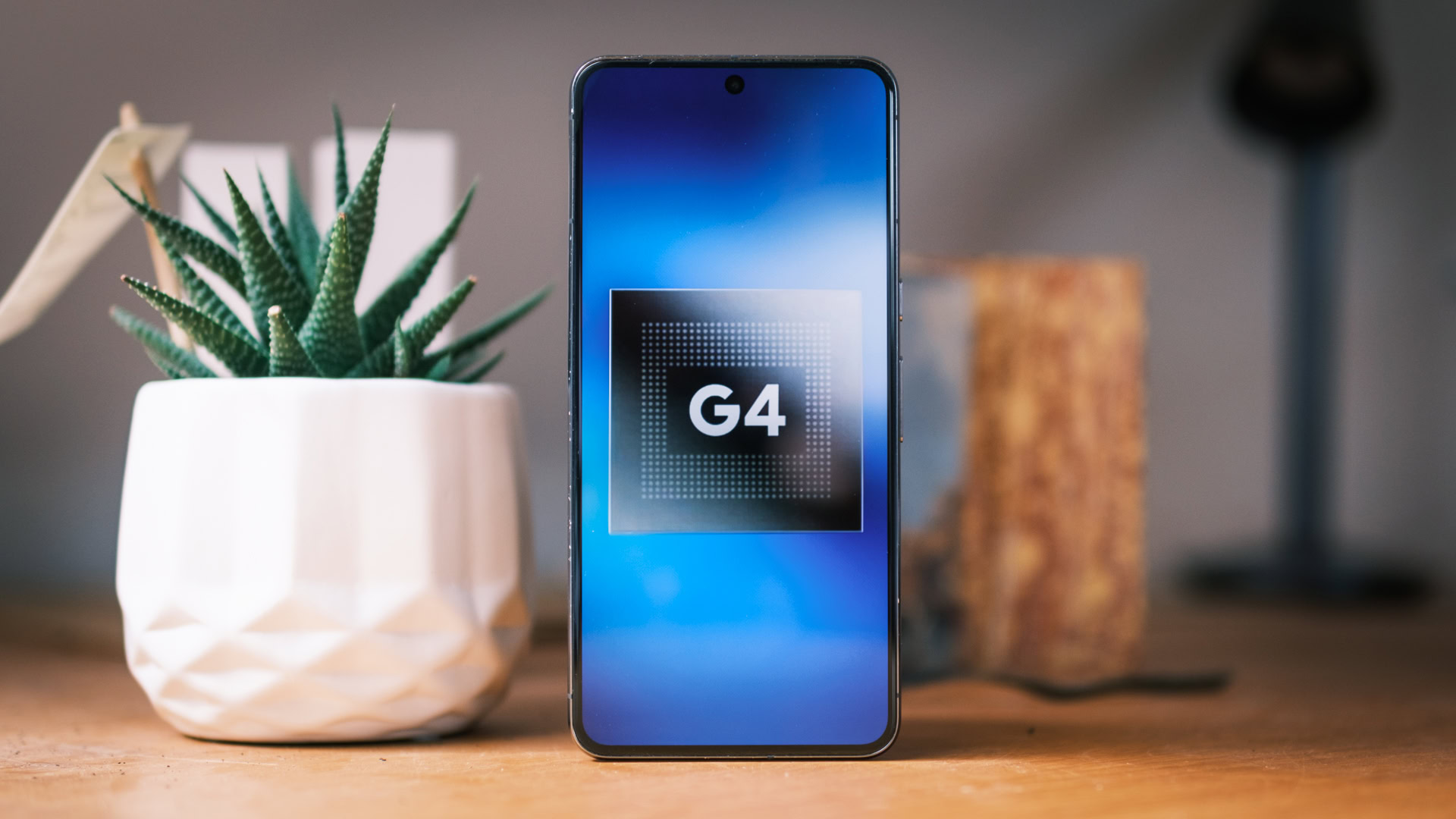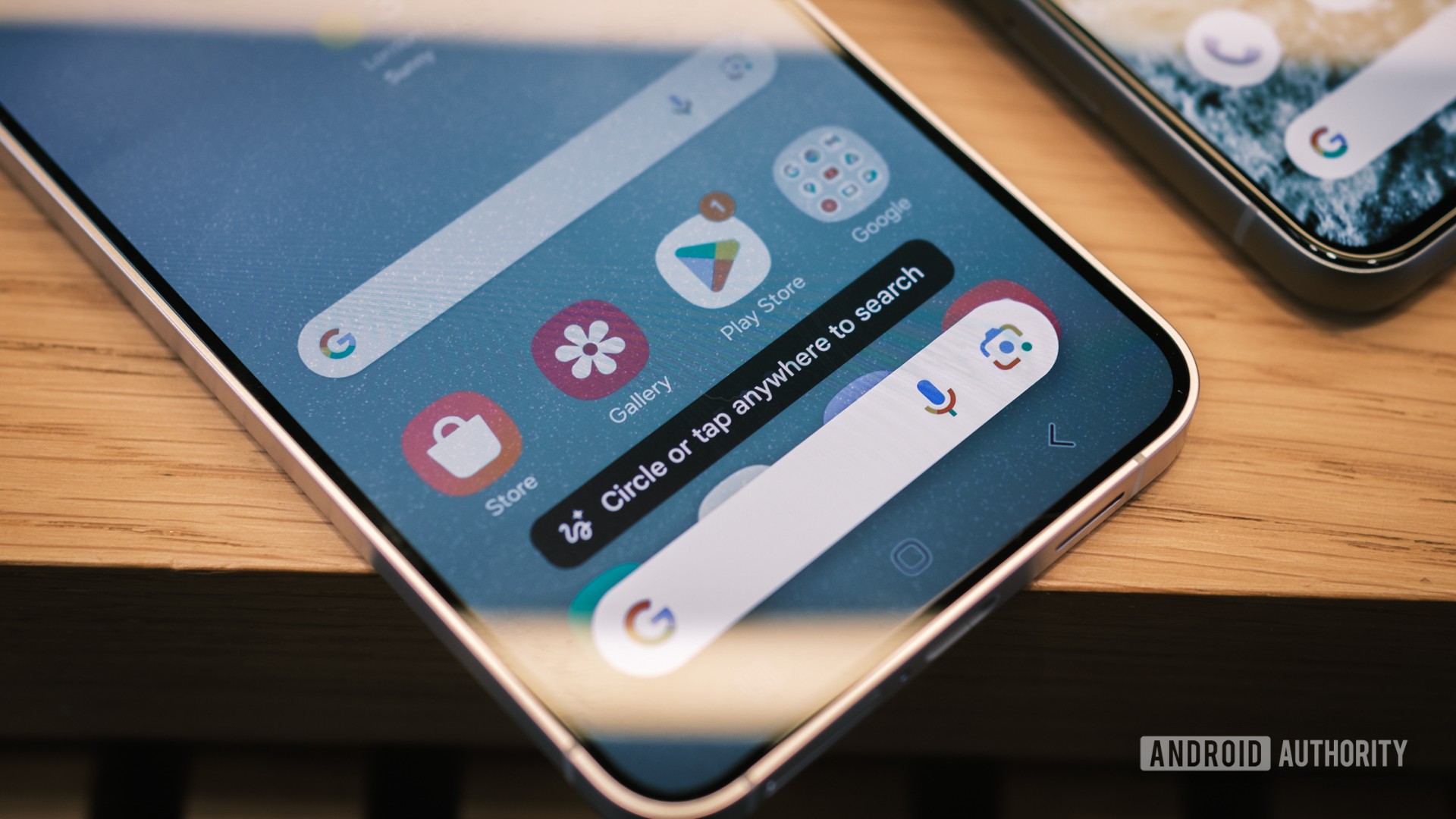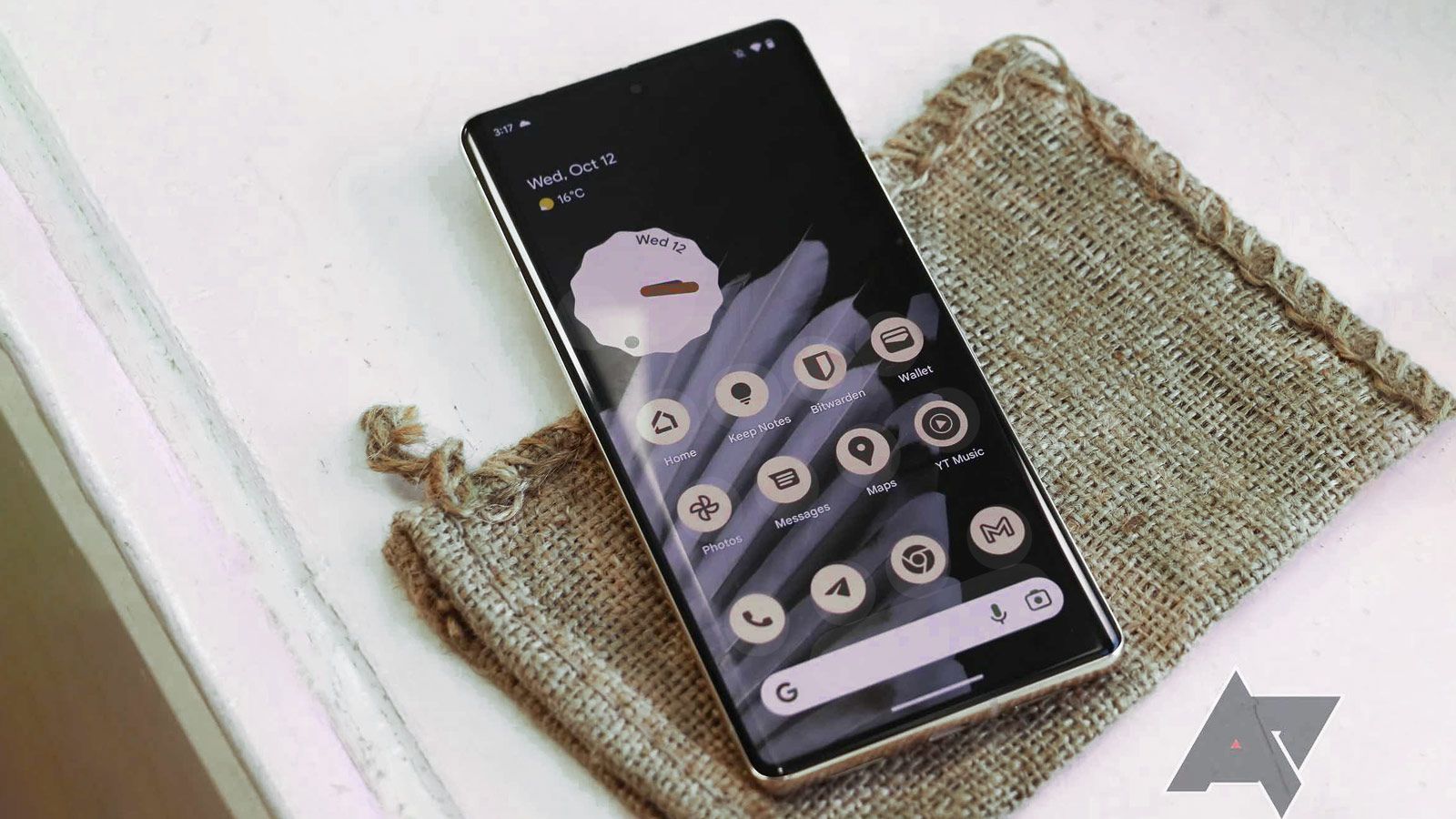If you didn’t already know, I like flip phones. I’ve been using the Motorola Razr Plus (2024) and Samsung Galaxy Z Flip 6 since they came out, and I’ve already theorized about what a flippable iPhone would look like. Now, it’s Google’s turn for my elevator pitch. I think it’s finally time for a Google Pixel Flip, but I think Google should probably wait until 2025 to launch it, and here’s why.
Finally, cooler under pressure
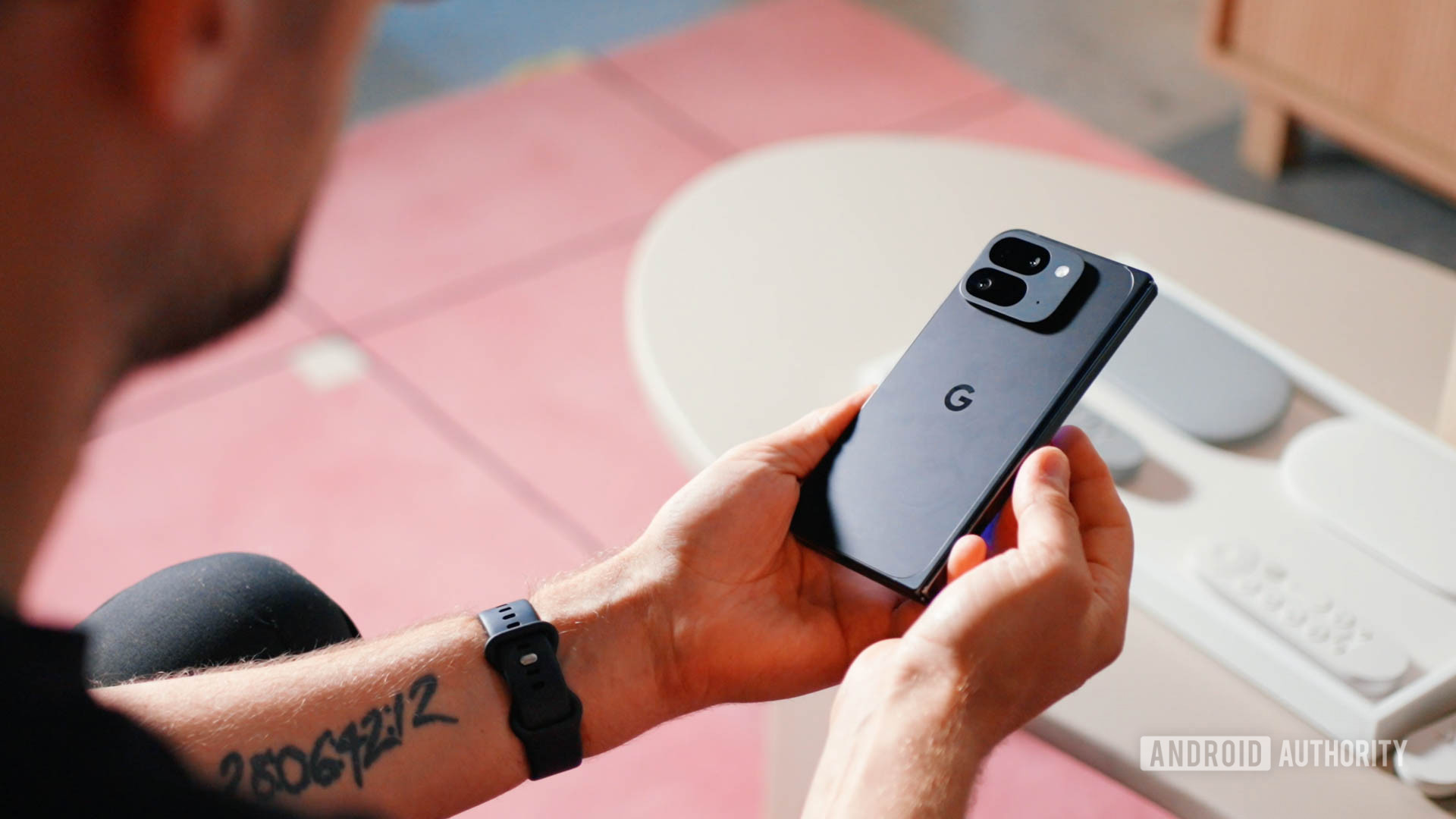
Credit: C. Scott Brown / Android Authority
If you’ve ever used a flip phone, be it a Galaxy Z Flip 6, Razr, or even OPPO’s Find N3 Flip, you know that the form factor has its limitations. You end up searching for the perfect mix of battery capacity, a capable chipset, and ample cooling power and find that you can only choose two of the three. Add one of Google’s roasty, toasty Tensor chips to that mix, and you’ve got a recipe for a flip phone that’s dead by noon — at least for now. Alright, I’m exaggerating, but only by a little bit.
I think 2025 will be the perfect time to put that Tensor heat under some flip phone pressure, though, because Google is finally changing its process. After four generations of Samsung-made Tensor chips, all signs point to Google switching to TSMC for what should become known as the Tensor G5. And, if you remember what happened when Qualcomm did the same thing when it moved from the Snapdragon 8 Gen 1 (made by Samsung) to the Snapdragon 8 Gen 2 (made by TSMC), you’ll know that the change in process should come with much better thermal performance.
Qualcomm switched from Samsung to TSMC for better thermals, and it sounds like Google's next.
Of course, that change may or may not come with a boost to raw performance power, but we know that’s not really Google’s priority. The current Tensor lineup already benchmarks behind Qualcomm’s top-tier Snapdragon 8 Gen 3, but we’re usually willing to give it at least somewhat of a pass because of all the AI features it has to power. Would I love to see the Tensor G5 bring a little more power to Pixel? Sure, but I’m happy to settle for better thermals in the meantime.
Once Google controls that heat, it will probably feel a bit more comfortable tackling the other limitations of the flip form factor. As soon as it settles on a chipset that doesn’t chew through the battery like it’s going out of style, it will be able to work out a battery capacity and cooling system that can fit within the pocket-friendly confines I’m looking forward to. And if Google is after a flip phone as thin as the Pixel 9 Pro Fold, it might be a true feat of engineering.
Third time’s the charm (seriously, though)
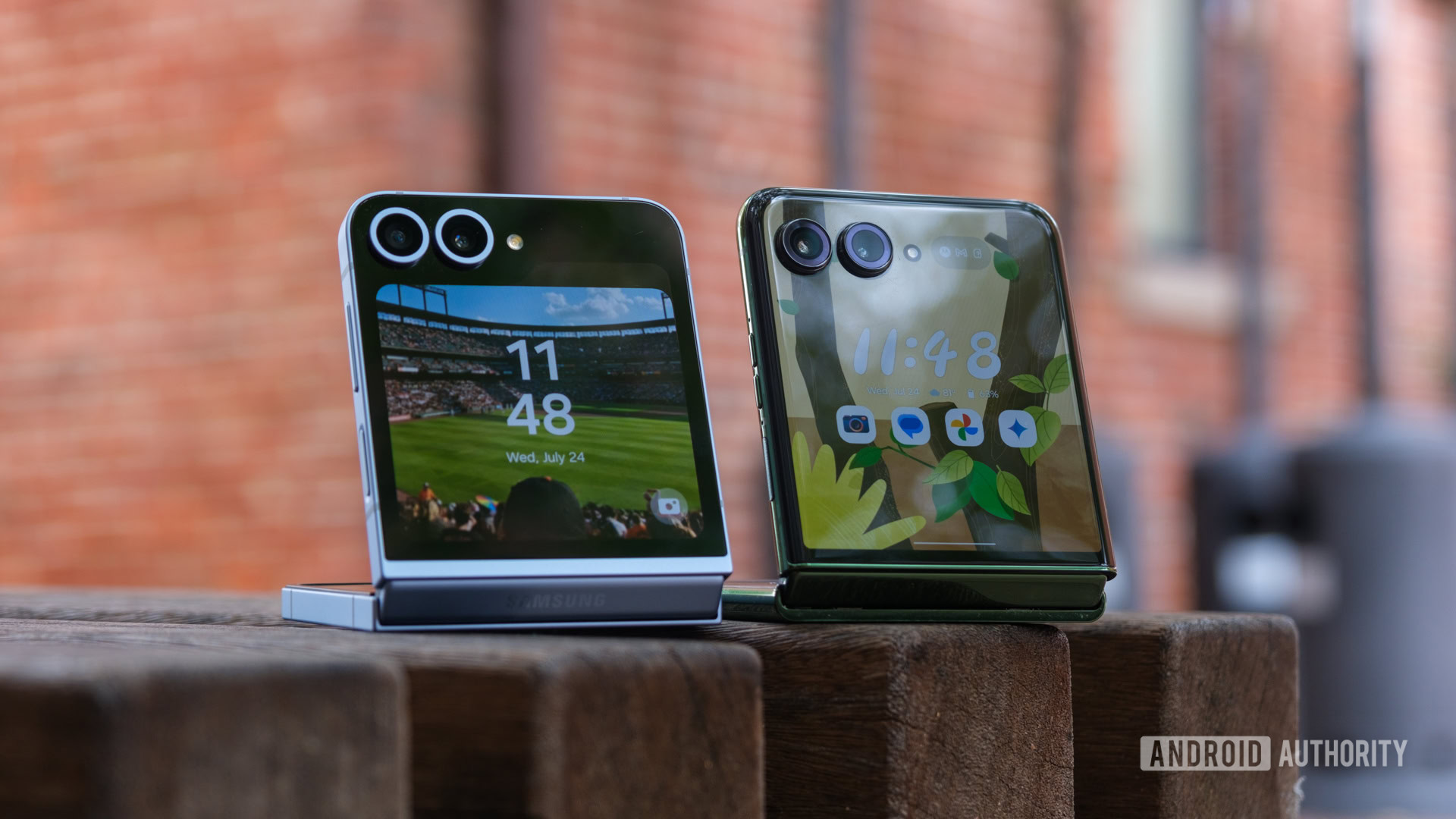
Credit: Ryan Haines / Android Authority
I’m also perfectly happy for Google to wait another year before launching its first Pixel Flip because that’s about when the best foldable phones hit their stride. It usually takes one or two tries before the hinge feels locked in and the crease begins to shrink. Think about it — the OnePlus Open is OPPO’s Find N3, the Galaxy Z Fold 3 is when Samsung finally started using tougher materials, and we’re kind of on the third Motorola Razr redesign as long as we don’t count the 2022 model that only came to China.
So, in 2025, Google will also be developing its third generation of foldable phones. By then, I think it will have learned a thing or two (if it hasn’t already). We’ve already seen quite the design evolution from the first Pixel Fold to the Pixel 9 Pro Fold, and now all Google has to do is find a way to scale it down. Its revamped hinge is a solid improvement over the original, opening easier and settling flatter after just one year of development. Google has also swapped from the sizable top and bottom bezels on its first Pixel Fold to thin ones with a punch hole selfie camera on its second, bringing it in line with most other book-style foldables.
I was also somewhat worried about how Google would combine its signature camera bar with a compact flip form factor, but it seems to have handled that on the Pixel 9 Pro Fold, too. The simple answer is that it’s not as married to the camera bar as I initially expected — which is good news for a flip phone. Instead of stretching its sensors across the back panel, it cut the camera bar in half and stacked two sensors on top of each other. So, if I had to guess, a Pixel Flip would then cut that modified camera bar in half again, giving us a two-camera setup similar to what is already on the Pixel 9 — complete with the excellent image processing that we already know it’s capable of.
Perhaps the biggest mystery after that is what Google would do with its cover screen (other than call it the Pixel Window, of course). It could either copy Samsung with an oddly shaped panel, mimic Motorola with one that stretches around the cameras (I doubt it), or follow OPPO with a narrower, phone-shaped display that sits next to the panels instead. I’m not sure which one I’d want, but I know that the revamped Pixel Weather widget would be a must-have, as would flexible app support — please don’t give me a Good Lock-like experience, Google.
Let’s face it: flip phones are just easier
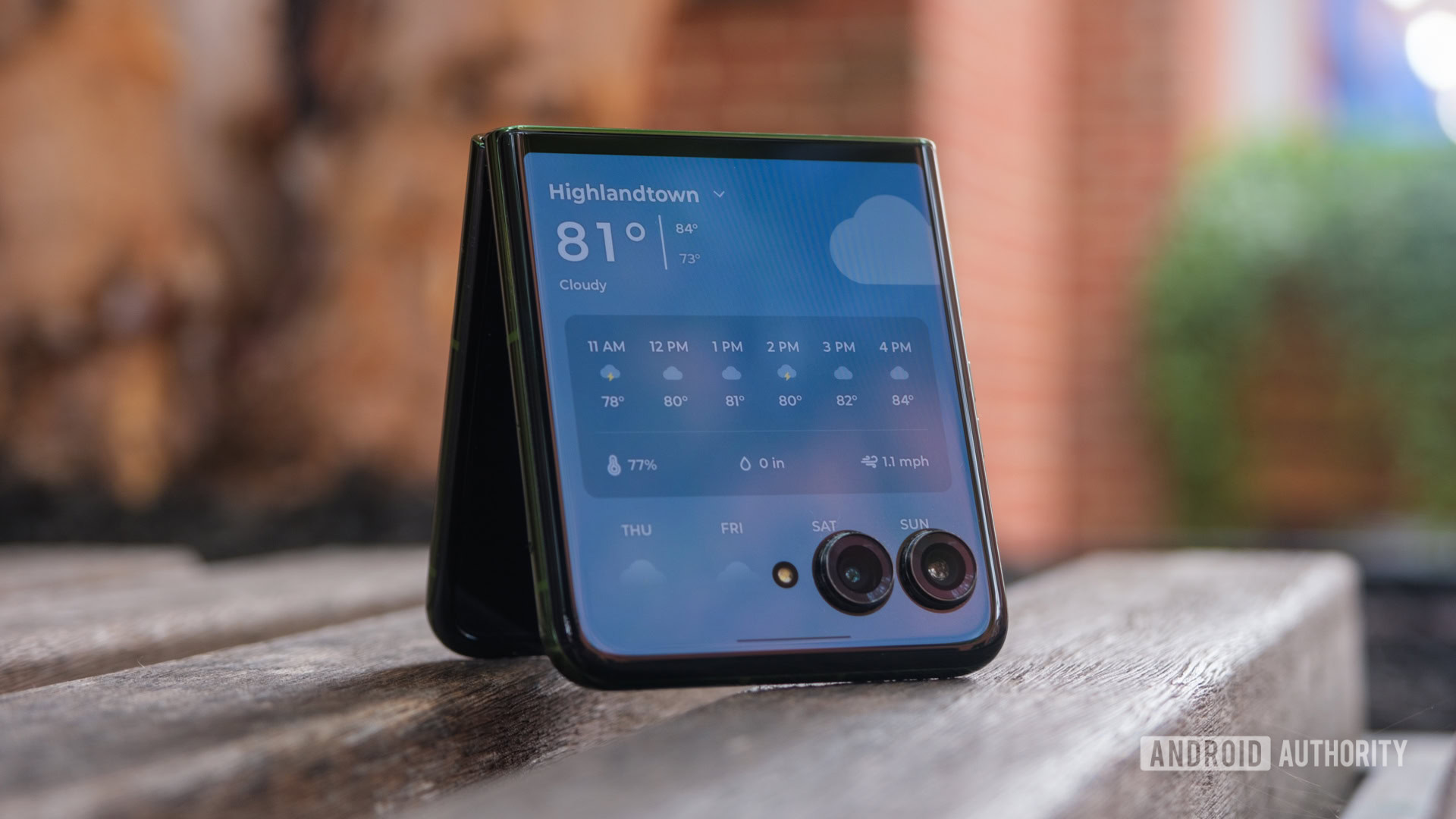
Credit: Ryan Haines / Android Authority
On top of it all, flip phones (like blondes) have more fun. Whereas book-style foldables tend to get lumped in as super-expensive devices for power users, flip phones are usually more affordable and seen as fashion statements. I think Google’s clean, colorful flavor of Android falls into the latter more than the former. Material You is loaded with color-matching options, and its large, relatively simple widgets seem like they’d flow perfectly across a relatively compact cover screen. Oh, and Google’s straightforward Gmail, Google Photos, and Messages interfaces should be easy enough to scale down for a pocket-friendly experience.
The fact that flip phones are typically more affordable should help Google’s chances, too. Unless you’re committed to a book-style foldable, it’s probably impossible to imagine spending $1,800 on your next phone. Dropping around $1,000, on the other hand, is somehow much more acceptable. Google has already bumped the price of its Pixel 9 Pro (the smaller one) to a grand, and the Galaxy Z Flip 6 now costs more than that at $1,100. So, if Google can ready up a Pixel Flip that undercuts Samsung, it might be onto something.
Google's Pixel UI and Gemini features are just the right kind of fun for a flip phone.
Even if Google launches a Pixel 10 Pro Flip (or some equally convoluted name) that matches the Galaxy Z Flip 7 dollar for dollar, I think it’ll be on the right track. Currently, Samsung’s expensive flip phone only really has to compete with the Motorola Razr Plus (2024), which it largely beats by offering longer software support, more reliable cameras, and a few Galaxy AI features ready ahead of the Moto AI rollout. Google can easily roll in with a matching seven years of updates, pack in its Magic Editor and Add Me features, and put Gemini in every last piece of Pixel UI. Once it does, Samsung will finally have to worry about someone not named Apple.
That is, of course, my dream for 2025. It feels like Google should be ready by then, and it all hinges on the switch from Samsung to TSMC for the Tensor G5 chip. If that happens and it works out like I think it will, I’ll carry a Google-branded flip phone for a long time to come.

